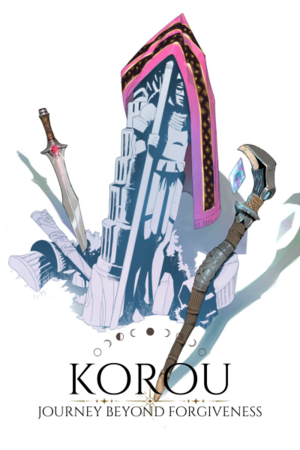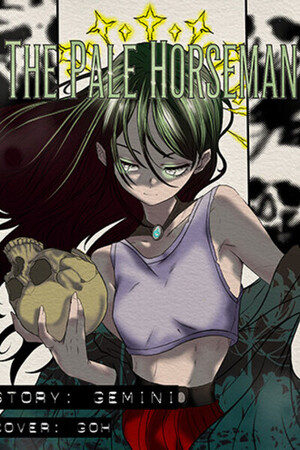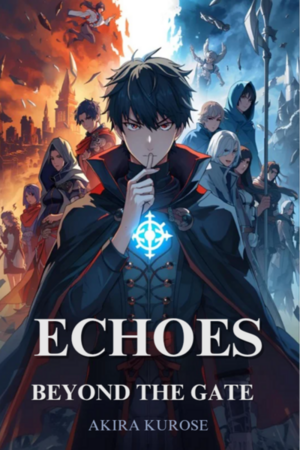Chapter 7:
7- THE AZURE FLAME SOFTENS THROUGH THE MOON HALO
What the Stars Couldn't Fix
The forests greeted him with indifferent silence, an absence of sound weighed down by the memories of the countless passersby who had trudged on the dirt tracks. Adithya walked through the same boughs, more ancient than time itself, their roots curling around soil akin to the souls of Asphodel, clinging to the embers of life. Once, his flame had burned through all of it, but now, only a remnant of the headless goddess remained in its stead, a heavy khanda hanging by his waist.
He'd been thrust into this path of wandering by those who placed no trust in his ability to change. Regrets still echoed loud in the lonely chambers of his mind, but for now, they were silent. His battle-weathered hands now held a small hunting knife beside his blade, the metal of them both catching the moonlight filtering through the frail branches.
He hunted not with fury or grandness, only patience. At first, the animals eluded him. Deer scattered before his steps. Rabbits vanished into burrows. Even the birds seemed to mock him, their wings a blur before he could act.
Adithya cursed himself, cursed the awkwardness of a body that knew only battle and wrath. Yet, hunger softened his pride. He watched, waited, learned. His breath grew quieter, his stride less heavy. He began to understand how life in the wild was not taken — it was borrowed, begrudged by the earth and its creatures.
Nights stretched long. He cut crude traps from rope and wood, even fashioning a bow and arrows despite not knowing archery. Luck favoured him sometimes, letting him catch hares and birds that filled his belly just enough for the next hunt, meat tasting more of survival than pleasure. His fingers grew deft at skinning and gutting, at whispering apologies to every carcass, a ritual of making death respectful, because that was what Frejya would’ve wanted.
Perhaps the gods mocked him for it. Perhaps Pan watched him sow seeds into the soil. Perhaps Kaeda watched with teary pride. Perhaps Artemis chided him for his inexperience. Perhaps Eri looked at him with her soft, signature smirk. Perhaps Skadi respected him for his desire to learn. Perhaps her vessel, Helga, wished to cook a nice meal for him. Still, he treaded forward.
On the twelfth night, the path wound him deeper, past streams that hissed with cold clarity, past stones carved by time into faces he thought he knew. The forest thickened until he stumbled upon it — a cottage, half-swallowed by ivy, its roof caved in places but still breathing. Smoke did not rise from the chimney. Yet, there was something… alive.
His feet pressed against the ground as his dominant left hand rested on his khanda. The woman at the doorway made him pause, of ashen skin and starlight hair, eyes slits of blood and moon. Her movements were slow, deliberate, like she had aeons left to live.
“Undead…” he mouthed in a whisper. He’d killed dozens in the few months he’d lived in the forest, long, black bodies with holes where the eyes were supposed to be, with toothless, fixed grins and smoky frames. Yet this one…
“Wait.”
She spoke, her voice soft like a whisper, yet stern like a strict tutor. It wasn’t the rasp of a dying person. It was soft, lethargic.
“You aren’t…like them…” he said, his eyes betraying awe.
Her lips didn’t curl into anything; they only opened partly. “Almost. Not yet, luckily enough.”
“Then what are you?”
“Ayla,” she said, as if that served as an explanation. But she only sighed, “If you’re going to stab me with that pointy stick, then don’t let the blood spill on the walkway. I’ll end you.”
Adithya froze. She could’ve died, but her concern was the house? He laughed, the sound faltering, setting the blade aside. Her gaze did not waver. Adithya felt the old impulse to strike, to purge what the world declared unnatural. Yet he saw no malice in her, only weariness. And perhaps, a longing for company.
So they stayed by each other in the house that smelled of dust and ash, with cabinets full of silverware cleaned to perfection. She threaded through shelves of yellow-paged books, jars of brittle herbs and wooden chairs that creaked like old bones. Ayla moved among these things with the care of memory, not of possession.
They became unlikely companions. Adithya, who had once shattered mountains with his rage, now learned how to sweep dust from a floor. How to mend a broken chair leg. How to stir a pot until the broth thickens into something edible. Ayla watched him fumble and fail, smiling faintly when he tried again.
Cooking humbled him the most. The fire he once wielded as a weapon now flickered in a hearth, its glow soft rather than searing. He burned his first stew and turned bread into stone. Ayla tasted each failure without complaint, only offering small corrections: less salt… more patience… stir slower. In her guidance, he felt something stir within him — not divinity, but humanity.
One evening, he failed to roast a deer despite his best attempts, growling in seething rage as he threw away the charred flesh, “What’s the point of cooking anyway? It’s a woman’s job, goddamnit!”
Ayla’s eyes narrowed in a way that reminded Adi of Ares’ rage or Demeter’s deranged attitude. “I’m sorry, could you repeat that, Adithya Naicker, ex-vessel of Chinnamasta?”
He froze but shook his head, “I don’t get it. This isn’t what I am made for. I’m fire—”
“Then learn restraint,” she said sharply.
“But—”
“You’re hungry,” she continued, “I’m not your mother to be feeding you daily. I won’t be around all the time.”
Her eyes were fixed on him unblinking. Not that she ever blinked.
“All animals end up learning to feed themselves. Birds only chew for the chicks at some point. When a child is eating, the mother doesn’t move the child's jaw with her hand, nor does a mother bird be an overbearing parent to the child because it can’t fly. When the forest grows cold, who gathers your wood if not you?”
He clenched his jaw, but her words left no ground for pride to stand on.
“You can burn seas, you said,” she murmured. “Then surely you can boil water without burning it.”
For the first time in his life, Adithya had no retort.
He swallowed hard, picked up the pan again, and tried.
From that night on, he learned. He was clumsy, stubborn, and failing often. But Ayla never coddled him. She corrected, she scolded, she expected. When he burned bread, she made him eat it anyway. When he over-salted the stew, she reminded him to taste before serving. When he tracked mud across the floor, she handed him a rag without a word.
“Why bother?” he once muttered while scrubbing.
Her reply was simple: “Because this is living. And living is never beneath you.”
Once, he dragged a deer carcass onto the front porch. Mud was splattered across his feet. He smiled, but Ayla only raised an eyebrow.
“You ran up to the marsh.”
“I tracked them there.”
“There was a path around the west neck of the woods to the same place.”
“But I caught them.”
She clicked her tongue, flicking his forehead, “You ruined the floor, you idiot.”
For the first time in a long time, Adithya laughed — an awkward, rusty sound. “Then teach me to clean.”
And she did.
Hunting, too, changed. Where before he killed to feed only himself, now he thought of her as well. He brought back hares, fish, and mushrooms gathered at dawn. Ayla, though she ate little, insisted on sharing. She said the act of eating together mattered more than the food. Adithya did not argue, knowing her wrath was worse than Susanoo’s.
Time blurred. Two winters passed as Adithya learned to chop wood, to wash his own clothes, to listen to the rhythm of the forest. He learned silence was not empty. With Ayla, silence was a kind of speech.
There were other times when Ayla broke down, memories of an unknown past ebbing into her ashen skin. Just like she’d been with him whenever those nightmares haunted him, he sat next to her, his back against hers. Neither did she thank him, nor did she push him away. She only clung to his shirt, not telling him why, but he was not aching to know.
She needed time.
Another night, he broke. “Why am I even here? Why was I cast down anyway? They curse me to live like a dog, cleaning floors and cooking by myself.”
She only stood with an unreadable look, “Better a dog that knows love than a God that knows only rage.”
Her words sank deeper than any blade. Adithya shrunk into himself, trembling. And as always, Ayla placed her hand on his shoulder. Cold, but steady.
Two years passed like this. In hunts, meals and small arguments over mud on the floor, in silence broken by shared stories. Adithya learned the races of the world through Ayla’s voice — humans fragile, fae fleeting, elves bound to earth and star, vampires cursed, dwarves steady as stone, the undead shackled yet living. He learned of monsters too: dragons who slumbered like mountains, werebeasts torn between selves, corrupted undead howling with hunger, sea monsters thrashing in the depths, mimics lurking as false doors and chests.
And he learned of the simplest creatures — the doe, the hare, the fox — who carried on without glory.
In her company, Adithya found something he had never sought: not absolution, not power… but rhythm. A way to be.
For in the quiet cottage, beneath the moon halo that gave Ayla her name, Adithya was not the fallen god. Not the exile.
He was simply Adi.
And that, for now, was enough.




Please sign in to leave a comment.